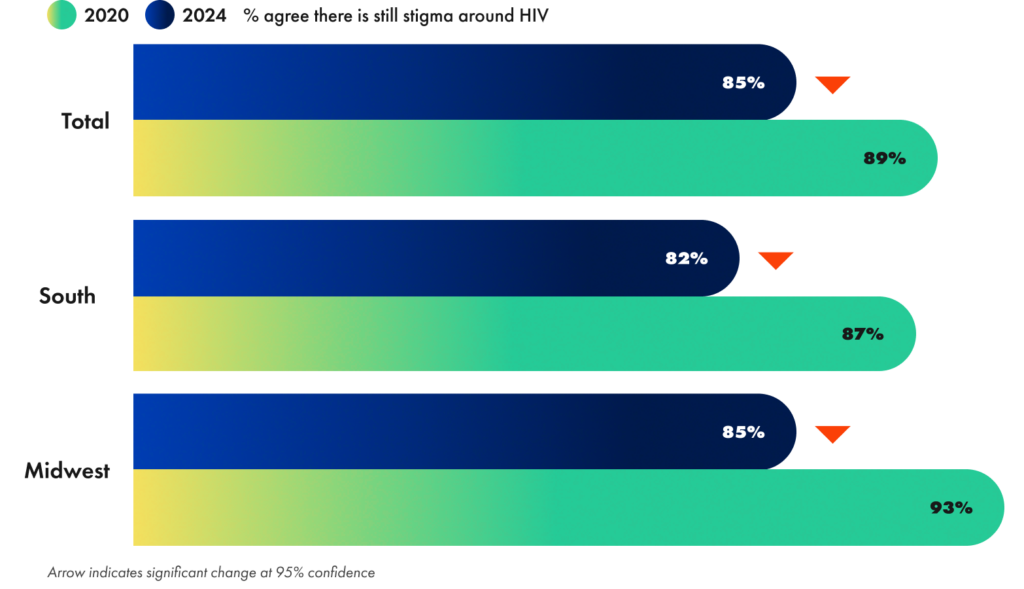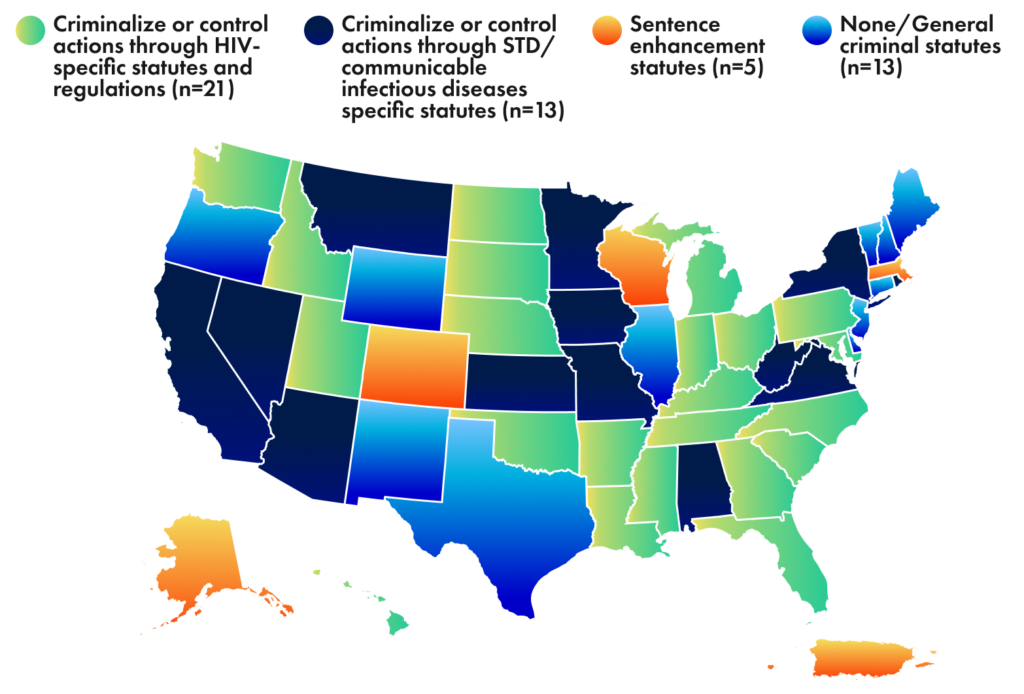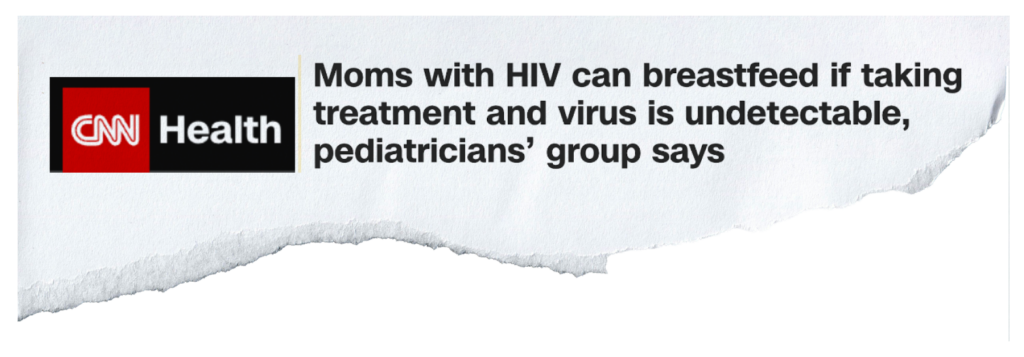HIV Stigma Spotlight: It’s “Significantly Evolved” in a World of “HIV Invisibility”
Whether it be interpersonal or structural, HIV stigma continues to affect people living with HIV, and with harmful consequences. Stigma stops people from getting tested and knowing their status, blocks people living with HIV from accessing treatment and continues to influence unjust laws that are on the books in multiple states. Despite stigma against the virus continuing to exist, data captured by GLAAD shows that there has been a significant decrease over five years in Americans believing that stigma continues to be a problem for people living with HIV (PLWHIV).
Overall, in 2024 85% of Americans believe there is still a stigma around HIV, which is down significantly from when GLAAD started asking this question in 2020 (89%). Regionally, there have been noticeable decreases seen in the Midwest and South, as well as among non-LGBTQ Americans and white Americans. Not only does stigma still exist for people with HIV, some people who spoke to GLAAD said that it plays a bigger role in life with HIV than people realize. “Stigma is the biggest issue, the biggest factor for people living with HIV, especially in the South,” said Arianna Lint, a trans woman living with HIV and the CEO of Arianna’s Center, an organization serving trans people living in Florida.
Significant Decreases in the Belief that Stigma Around HIV Still Exists

That the percentage of people who don’t recognize HIV stigma is real speaks to less familiarity with HIV overall. That might be because conversations, even casual ones, about HIV happen far less in a world with better HIV treatment and prevention. This can give the impression that the HIV/AIDS epidemic is over. “What’s starting to be prevalent now is HIV invisibility,” says Jeremiah Johnson, who is living with HIV and is the executive director of the nonprofit organization PrEP4All. “In some of the most privileged communities, HIV is not as intense and therefore, to them, it no longer exists and is no longer focused on. It’s challenging if you are part of a community that doesn’t have that as your situation and for whom we still need to be doing important awareness raising and policy work.”
Many people might remember very blatant and obvious forms of stigma, such as people living with HIV being shunned by family or being asked to use different cutlery and plates from their HIV-negative family. That kind of discrimination still happens, according to Marnina Miller, the co-executive director of the Positive Women’s Network – USA, an organization dedicated to empowering women living with HIV. She said that she still hears from people through the Positive Women’s Network – USA that people still face discrimination from family members, including having to have a different set of linens at home. “HIV stigma has significantly evolved, but you still have fear around casual contact for people living with HIV,” she said.
HIV and STD Criminalization Laws 2023

But, as media depictions and conversations around HIV have fallen, there is much less mass media insight into how an HIV diagnosis affects people’s lives, including in unseen or underreported ways.
Keiva Lei Cadena, who is the Positive Women’s Network – USA’s other co-executive director, and Miller both emphasized that living with HIV means that their bodies are either not allowed certain places or considered dangerous depending on where they travel. The HIV stigma that has leaked into America’s legal infrastructure means that Cadena has to be careful when traveling for work, as just doing her work as the head of an organization puts her at risk.
“I need to know where I’m safe and where I’m not safe,” she said. “And if not, how are we protecting ourselves?”

Miller added that there are still countries where she is not allowed to travel. Some countries, such as Yemen, the United Arab Emirates and Russia have restrictions on travel for people with HIV, depending on how long a person is planning to visit the country6.
When stigma is systemic, it becomes less visible or obvious; but it weighs on people with HIV all the same. Currently, 34 states have laws that criminalize HIV exposure, according to the CDC7.
“There’s no other virus that can be criminalized the way that HIV is, and it still happens in many of our states with very dangerous laws,” Cadena said. “And we still have people that are still in prison because they were having sex while living with HIV. “If we stop talking about stigma in this kind of way, those experiences get forgotten, and that’s dangerous.”
How people with HIV experience stigma also comes down to their other identities, as well. Miller specifically mentioned how it was only this year that HIV-positive mothers were told that they could breastfeed their children safely. Prior to this change, many mothers living with HIV were made to feel shame and stigma about their status.8.
And while systemic stigma is still harrowing, interpersonal stigma still makes navigating everyday events thorny. Cases of interpersonal stigma still weigh heavily on people with HIV, often causing stress around issues of disclosure. People living with HIV often have to think heavily about who they are comfortable disclosing their status to, according to Daniel Driffin, Dr.P.H., a project manager at the HIV Vaccine Trials Network. “Disclosure is still an issue,” he said. “Each time is a new time. I have been out for numerous years, and still it’s the process of thinking, “Do I have the energy to go through this again and again?”












